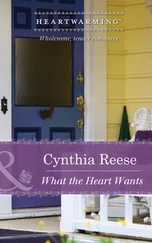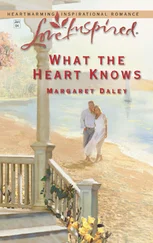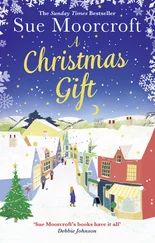William White - In the Heart of a Fool
Здесь есть возможность читать онлайн «William White - In the Heart of a Fool» — ознакомительный отрывок электронной книги совершенно бесплатно, а после прочтения отрывка купить полную версию. В некоторых случаях можно слушать аудио, скачать через торрент в формате fb2 и присутствует краткое содержание. Жанр: foreign_sf, foreign_antique, foreign_prose, на английском языке. Описание произведения, (предисловие) а так же отзывы посетителей доступны на портале библиотеки ЛибКат.
- Название:In the Heart of a Fool
- Автор:
- Жанр:
- Год:неизвестен
- ISBN:нет данных
- Рейтинг книги:3 / 5. Голосов: 1
-
Избранное:Добавить в избранное
- Отзывы:
-
Ваша оценка:
- 60
- 1
- 2
- 3
- 4
- 5
In the Heart of a Fool: краткое содержание, описание и аннотация
Предлагаем к чтению аннотацию, описание, краткое содержание или предисловие (зависит от того, что написал сам автор книги «In the Heart of a Fool»). Если вы не нашли необходимую информацию о книге — напишите в комментариях, мы постараемся отыскать её.
In the Heart of a Fool — читать онлайн ознакомительный отрывок
Ниже представлен текст книги, разбитый по страницам. Система сохранения места последней прочитанной страницы, позволяет с удобством читать онлайн бесплатно книгу «In the Heart of a Fool», без необходимости каждый раз заново искать на чём Вы остановились. Поставьте закладку, и сможете в любой момент перейти на страницу, на которой закончили чтение.
Интервал:
Закладка:
Those were gala days for Captain Morton; the whole universe was flowering in his mind in schemes and plans and devices which he hoped to harness for his power and glory. And the forensic group at Mr. Brotherton’s had much first hand information from the Captain as to the nature of his proposed activities and his prospective conquests. And while the Captain in his prime was surveying the world that was about to come under his domain the house of Adams, little and bleak and poor, down near the Wahoo on the homestead which the Adamses had taken in the sixties became in spite of itself, a gay and festive habitation. Childhood always should make a home bright and there came a time when the little house by the creek fairly blossomed with young faces. The children of the Kollanders, the Perrys, the Calvins, the Nesbits, and the Bowmans–girls and boys were everywhere and they knew all times and seasons. But the red poll and freckled face of Grant Adams was the center of this posy bed of youth.
Grant was a shrill-voiced boy, impulsive and passionately generous and all but obsessed with a desire to protect the weak. Whether it was bug, worm or dog, or hunted animal or bullied child or drunken man, fly-swarmed and bedeviled of boys in the alley, or a little girl teased by her playmates, Grant–fighting mad, came rushing in to do battle for the victim. Yet he was no anemic child of ragged nerves. His fist went straight when he fought, and landed with force. His eyes saw accurately and his voice carried terror in it.
He was a vivid youth, and without him the place down by the river would have been bleak and dreary. But because Grant was in the world, the rusty old phaëton in which Amos and Mary rode daily from the farm to their work, gradually bedecked itself with budding childhood blooming into youth, and it was no longer drab and dusty, but a veritable chariot of life. When Grant was a sturdy boy of eight, little Jasper Adams came into this big bewildering world. And after Grant and his gardenful of youth were gone, Jasper’s garden followed. And there was a short season when the two gardens were growing together. It was in that season while Grant was just coming into shoeblacking and paper collars, that in some indefinite way, Laura Nesbit, daughter of the Doctor and Bedelia Satterthwaite, his blue blooded Maryland wife, separated herself from the general beauty of the universe and for Grant, Laura became a particular person. In Mary Adams’s note book she writes with maternal pride of his fancy for Laura: “It is the only time in Grant’s life when he has looked up instead of down for something to love.” And the mother sets down a communication from Socrates through the planchette to Amos, declaring that “Love is a sphere center”–a message which doubtless the fond parents worked into tremendous import for their child. Though a communication from some anonymous sage called the Peach Blow Philosopher, who began haunting Amos as a familiar spirit about this time recorded the oracle, also carefully preserved by Mary in her book among the prophecies for Grant that, “Carrots, while less fragrant than roses, are better for the blood.” And while the cosmic forces were wrestling with these problems for Grant and Laura, the children were tripping down their early teens all innocent of the uproar they were making among the sages and statesmen and conquerors who flocked about the planchette board for Amos every night. For Laura, Grant carved tiny baskets from peach-pits and coffee beans; for her he saved red apples and candy globes that held in their precious insides gorgeous pictures; for her he combed his hair and washed his neck; for her he scribbled verses wherein eyes met skies, and arts met hearts, and beams met dreams and loves the doves.
The joy of first love that comes in early youth–and always it does come then, though it is not always confessed–is a gawky and somewhat guilty joy that spends itself in sighs and blushes and Heaven knows what of self-discovery. Thus Grant in Laura’s autograph album after all his versifying on the kitchen table could only write “Truly Yours” and leave her to define the deep significance of the phrase so obviously inverted. And she in his autograph album could only trust herself–though naturally being female she was bolder–to the placid depths of “As ever your friend.” Though in lean, hungry-eyed Nathan Perry’s book she burst into glowing words of deathless remembrance and Grant wrote in Emma Morton’s album fervid stanzas wherein “you” rimed with “the wandering Jew” and “me” with “eternity.” At school where the subtle wisdom of childhood reads many things not writ in books, the names of Grant and Laura were linked together, in the innocent gossip of that world.
They say that modern thought deems these youthful experiences dangerous and superfluous; and so probably they will end, and the joy of this earliest mating season will be bottled up and stored for a later maturity. God is wise and good. Doubtless some new and better thing will take the place of this first moving of the waters of life in the heart; but for us of the older generation that is beginning to fade, we are glad that untaught and innocent, our lips tasted from that spring when in the heart was no knowledge of the poison that might come with the draft.
A tall, shy, vivid girl, but above everything else, friendly, was Laura Nesbit in her middle teens; and though Grant in later years remembered her as having wonderful gray eyes, the elder town of Harvey for the most part recollects her only as a gay and kindly spirit looking out into the world through a happy, inquiring face. But the elder town could not in the nature of things know Laura Nesbit as the children knew her. For the democracy of childhood has its own estimates of its own citizens and the children of Harvey–the Dooleys and the Williamses and the Bowmans as well as the Calvins, the Mortons, the Sandses and the Kollanders, remember Laura Nesbit for something more than her rather gawky body. To the children, she was a bright soul. They remember–and the Bowmans better than any one else–that Laura Nesbit shared what she had with every one. She never ate a whole stick of candy in her life. From her school lunch-basket, the Dooleys had their first oranges and the Williamses their first bananas. Apples for the Bowmans and maple sugar–a rare delicacy on the prairies in those days–for every one came from her wonderful basket. And though her mother kept Laura in white aprons when the other girls were in ginghams and in little red and black woolen, though the child’s wonderful yellow hair, soft and wavy like her father’s plumey roach, was curled with great care and much pride, it was her mother’s pride–the grim Satterthwaite demand for caste in any democracy. But even with those caste distinctions there was the face that smiled, the lips that trembled in sympathy, the heart that felt the truth.
“Jim,” quoth the mother on a day when the yard was full of Dooleys and Bowmans and Calvins–Calvins, whom Mrs. Nesbit regarded as inferior even to the Dooleys because of the vast Calvin pretense–“Jim, Laura has inherited that common Indiana streak of yours. I can’t make her a Satterthwaite–she’s Indiana to the bone. Why, when I go to town with her, every drayman and ditch digger and stableman calls to her, and the yard is always full of their towheaded children. I’ll give her up.”
And the Doctor gurgled a chuckle and gave her up also.
She always came with her father to the Adamses on Sunday afternoons, and while the Doctor and Amos Adams on the porch went into the matter of the universe as either a phantasm superinduced by the notion of time, or the notion of time as an hallucination of those who believed in space, down by the creek Grant and Laura sitting under the oak near the silent, green pool were feeling their way around the universe, touching shyly and with great abasement the cords that lead from the body to the soul, from material to the spiritual, from dust to God.
Читать дальшеИнтервал:
Закладка:
Похожие книги на «In the Heart of a Fool»
Представляем Вашему вниманию похожие книги на «In the Heart of a Fool» списком для выбора. Мы отобрали схожую по названию и смыслу литературу в надежде предоставить читателям больше вариантов отыскать новые, интересные, ещё непрочитанные произведения.
Обсуждение, отзывы о книге «In the Heart of a Fool» и просто собственные мнения читателей. Оставьте ваши комментарии, напишите, что Вы думаете о произведении, его смысле или главных героях. Укажите что конкретно понравилось, а что нет, и почему Вы так считаете.












